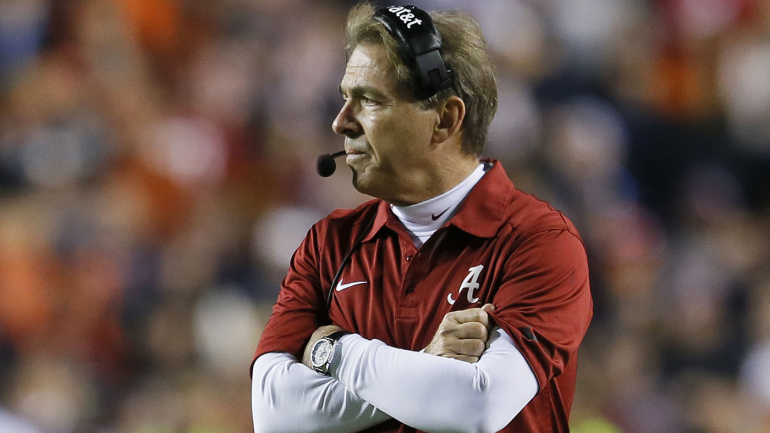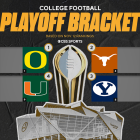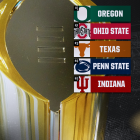
On Nov. 30, 2013, Alabama coach Nick Saban and the Crimson Tide were on the wrong end of one of the most famous college football plays of all time. The Iron Bowl was tied at 28 with 1 second left -- a second that Saban had lobbied for and received after review confirmed that running back T.J. Yeldon stepped out of bounds before the clock hit triple zeros. On the final play of regulation, Adam Griffith's 57-yard field goal attempt fell short and into the hands of Auburn defensive back Chris Davis. Davis scampered down the left sideline as time expired to give Auburn the 34-28 win, the SEC West title and bring an end to Alabama's quest to three-peat as BCS national champions.
Saban's response was stoic as he walked off the field. It was as if he was in as much shock as the 87,451 fans packed into Jordan-Hare Stadium. Those emotions boiled over into tears in the locker room, according to "The Leadership Secrets of Nick Saban," a new book by AL.com senior sports editor John Talty released on Tuesday.
"You walk in and everyone is crying. Fifty percent crying and 50 percent tearing up," former Alabama running back and kick returner Christion Jones says in the book. "Coach Saban was in tears -- he could barely talk. His face was red. Everyone was emotional; it was a funeral moment."
That funeral lasted through the Sugar Bowl, a 45-31 loss to Oklahoma. It was a turning point in the evolution of Saban's program.
The 2013 Auburn team was led by quarterback Nick Marshall and the up-tempo offense of then first-year coach Gus Malzahn. Saban, who was vehemently against up-tempo offenses at the time, went out and hired Lane Kiffin to run a similar system after the Sugar Bowl. This while backing a proposal along with then-Arkansas coach Bret Bielema that would prevent teams from snapping the ball until 10 seconds have clicked off of the play clock.
It was yet another example of one of the coaching principles by which Saban lives: Don't waste the failure. The Crimson Tide went on to claim the next three SEC championships, won the 2015 national title and claimed the 2017 championship despite the absence of an SEC West title.
That principle was seeded in the Crimson Tide since Saban's first year at Alabama in 2007, a season in which they lost 21-14 to lowly ULM. According to the book, an unnamed defensive leader stood up in the locker room and unleashed a profanity-laced tirade about the lack of focus, taking the Warhawks lightly, slacking in the film room and staying out too late during game week.
That wasn't good enough for Saban, however.
"That's a great speech," he said in the locker room, "but it was about three days too late. You should have had the courage to say that on Tuesday or Wednesday when you saw this going on. Anybody can say it after the fact."
The Tide lost the final game of the regular season, but then reeled off 13 straight wins to establish the foundation of the Alabama dynasty.
"When stuff was out of line, it was getting addressed right then," Antoine Caldwell, a team captain in 20008, said in the book. "There was no more after the fact or let things slide; we were addressing things immediately. And it makes a world of difference. When you draw a line in the sand, it permeates through the team."
Saban's tears after the 2013 Iron Bowl were a turning point. A renaissance. A pivot in the program that showed Saban accepted the failure, adjusted to the new era and re-set the foundation for a program that hasn't slowed down since that 109-yard heartbreak on The Plains

















